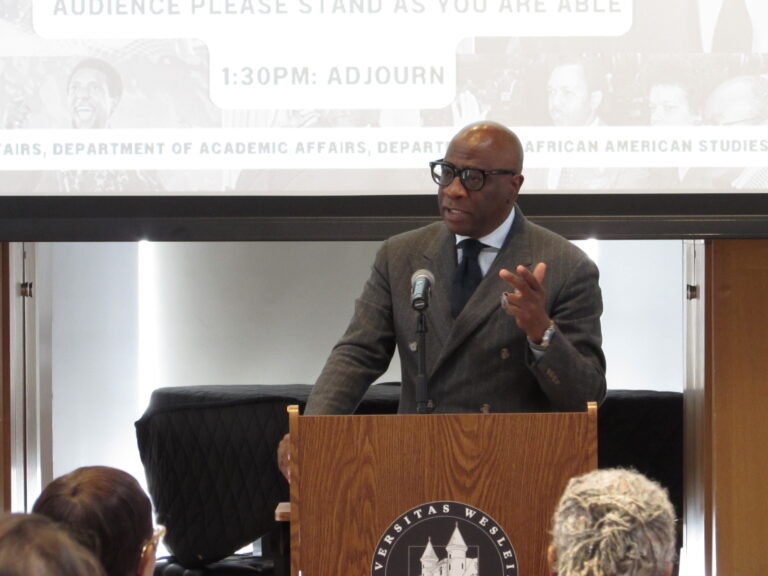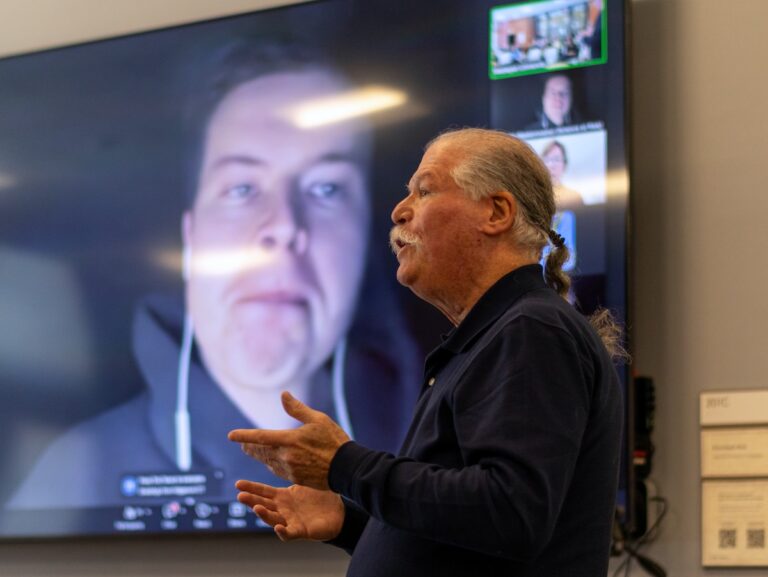WSA site to offer online forum
The Wesleyan Student Assembly (WSA) launched a new website on Tuesday, replacing one which many members regarded as stale and not functional. Another WSA site for student evaluations of courses and professors is expected to be online by the end of the week.
“Ideally, I’d like [the website] to be everyone’s homepage,” said WSA President Sohana Punithakumar ’04 at a WSA meeting last month.
To accomplish this goal, WSA Vice President Danny Rodriguez ’04 recruited the help of Greg Heller ’04 and WesMatch creator Dan Stillman ’04. Rodriguez is chair of the Independent Projects Committee (IPC), which is in charge of the website project.
Heller was put in charge of designing the new site and updating the content from the old site. Stillman designed a corollary site, E-Squid, on which students can share their evaluations and opinions of professors and University courses. E-Squid can be accessed from a link on the WSA’s website.
In addition to a different layout design, the new site features a discussion forum for WSA issues, updated lists of WSA committee members, resources for student groups, a schedule of upcoming events and an updated contact list of student groups. The site also includes minutes of recent WSA meetings and general updates and information about the WSA. Heller said he will update the site several times a week.
“What we are trying to do is give people reasons to come to the WSA’s site,” Heller said. “It’s not going to be a static website.”
Rodriguez and other WSA members expressed dissatisfaction with the previous website, which they said was largely ignored by students.
“[The old site] was not a very utilitarian site,” Rodriguez said. “It was just there.”
Heller agreed.
“I think the site before was very underused mainly because it was a pretty bland site with little content,” he said.
The WSA General Assembly reacted favorably to the new site when Rodriguez presented it to them during a WSA meeting last Sunday night.
Heller said that the online forum was designed to facilitate student discussion about campus issues and to help the WSA gauge student opinion. “My hope is that people start a dialogue out there to supplement Wespeaks and other things,” Heller said. “Hopefully the WSA will take that information into account when it makes decisions.”
According to Rodriguez, all postings for the forum will include the name of the submitting student.
“[The purpose is] to open up discussion and if they don’t know who they’re talking to, there can’t really be a discussion,” he said. “I don’t know if we’d want to do it anonymously, because if you’re saying it, you want to talk to people. You don’t want to just have it like people posting random comments up there. It’s interactive.”
The first student forum Heller designed focused on the issue of off-campus points. He included links on the site to all Argus articles related to the issue so that students can read about the details of the debate. He also added the full text of the recent WSA dining resolution.
With E-Squid, Stillman said, students will have the chance to evaluate professors and courses on the site anonymously. Any comments made will also be open to the perusal of professors.
“There may be some initial reservations, but our hope is that they will eventually embrace it as something to facilitate meaningful discussion about our academic experiences here,” Stillman said.
Government Professor Martha Crenshaw, the acting chair of the faculty, said that she did not know about E-Squid.
The E-Squid evaluation includes professor rankings on a one to five scale for enthusiasm, approachability, quality of teaching, course design, suitability of work and overall experience. There is also space for additional comments. Students reading the evaluations can indicate whether they found each review helpful, according to Stillman. He said this ranking will determine the order in which the reviews are put up on the site.
The site will also highlight top-rated professors and courses.
Stillman said there is a feature on the site to indicate if a user finds a particular evaluation to be offensive or otherwise inappropriate. He said that while users will not know who posts comments, accountability will be enforced because he and the IPC will know who wrote them.
Rodriguez said that this feature will send an e-mail to each member of the IPC, which will then act to assess the report and, if necessary, remove the evaluation. While there is currently no WSA policy to patrol the site, Stillman said the WSA Executive Committee should have one set up by the time E-Squid is launched.
Several further suggestions were made for the new website at the Sunday meeting, including links to information about the Social Committee, Honor Board, Student Judiciary Board and Argus headlines.
Rodriguez said he planned to send out an all-campus email to notify the student body about the new site.
Dean of Student Services Mike Whaley, who was present at the meeting, asked that a description be added to the E-Squid site so that users know that the posted evaluations are not the same as the formal evaluations that students complete at the end of every course for use by the University.
Wesleyan will not be first to have student written reviews of professors and faculty. The Yale Daily News has for a number of years sponsored “The Course Critique” in which students can evaluate professors and courses. However, that report is not available online.
Stillman said he believed Hampshire College has a site similar to E-Squid. He said that E-Squid has existed at Wesleyan intermittently over the past ten years. He took the name for the site from these predecessors. He said that previous attempts ended due to graduating seniors, but that he and Rodriguez were making plans so that E-Squid does not disappear with their graduation at the end of this year.
“I was really pleased with the work they had done,” Punithakumar said after Sunday night’s meeting.
She said that the WSA will accept criticism and feedback to help it to improve the new site.







Leave a Reply